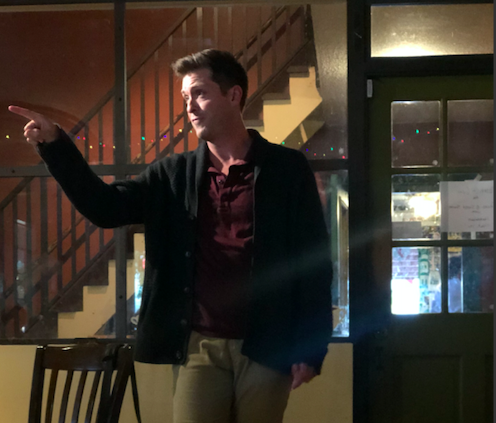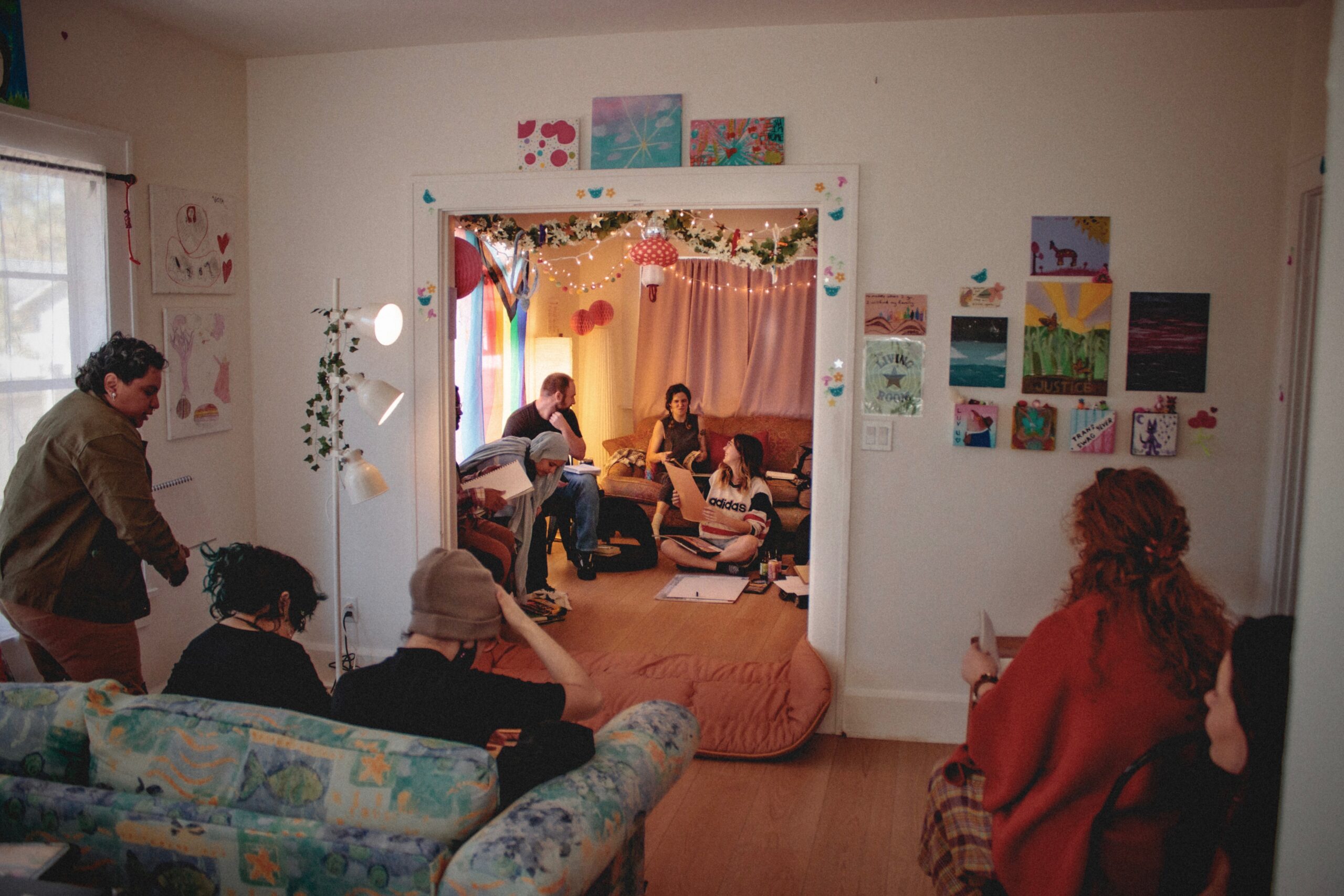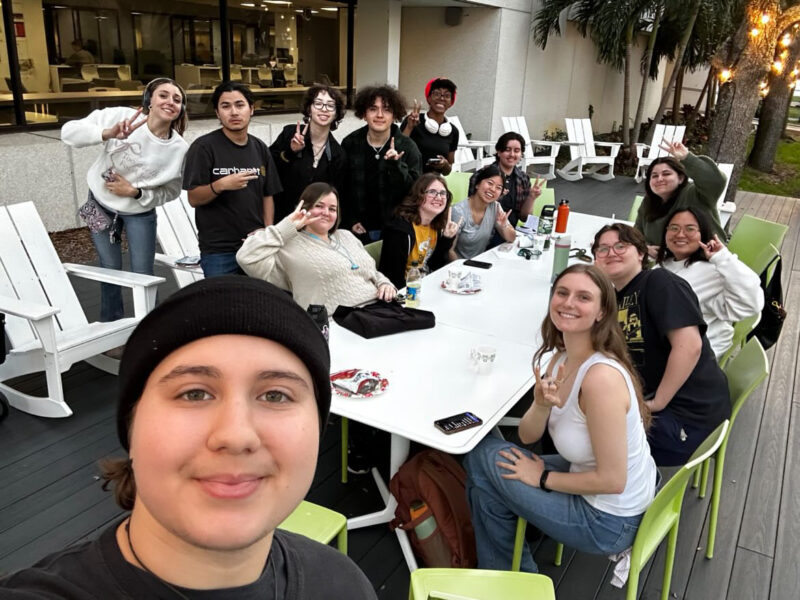
By Katlynn Mullins
A cute barista, an existential crisis, alter egos, grief and Donald Trump — all in under an hour.
Welcome to John Mark Jernigan’s “Hello.”
The entire show was a monologue: a glimpse into the mind of Barry (played by Chris Crawford), a theatre critic who didn’t “find fulfillment in criticizing other people’s work.”
The play began with Barry’s favorite barista drawing a heart next to “Bartholomew” that morning.
Was he flirting? Was he just trying to get a tip? Was he even gay?
That night, Barry walked downstairs to 7-Eleven for wine, where the cashier addressed him by name. Barry was dumbfounded. He had been going there for as long as he could remember and had never bothered to learn the cashier’s name.
A need for deeper human connection was revealed.
The audience was then introduced to Michael, Barry’s ex-boyfriend, and his mother, who died when he was just a child.
The fourth wall was broken by Sally Field and Carrie Fisher, who were audience members picked at random that were supposed to respond “yes” and “no” when addressed. Field and Fisher were reminiscent of the devil and an angel on Barry’s shoulders, but both were powerless.
Paths were weaved between thoughts of suicide, the muscular barista and Donald Trump, who was elected as president three months after he and Michael had broken up.
Though the monologue was dreary, the self-deprecating humor shed positivity in the dimly lit room. It intertwined raw, unforgiving emotion with hope and solidarity.
Finally, after the story was told, things slowed down, and it was time for rest. A message of self-love was given — a promotion of forming connections and fostering relationships.
“We are all worth celebrating without any agenda,” Barry said. The acoustic guitar, played by Anthony R. Smith, adopted a lighter tone to match.
Happiness was greeted by birds chirping excitedly. Eye contact was held with the audience throughout the show, only adding to the power of the message.
The Campus Grind’s low lighting set the mood, and the casual seating arrangement made the intimacy easy — natural, even.
The trio was “used to fringe setups,” where they could control the lighting and stage, but had been looking “for a found space like this,” said Jernigan, playwright and director.
Fringe productions don’t follow traditional theatre. They’re simple, yet experimental. Shows are typically shorter and kept minimalistic. There is no specific style or genre, but they generally address non-traditional topics.
“Hello” brings this energy, along with a message that has recently become prominent, but has always been significant.


